Soda and Kidneys
Is pop bad for your kidneys? Soda, Pop, Coke, Cola, Soft Drinks. Whatever you call it, it has a big impact on your health. Drinking soda can cause you to gain weight, retain fluid, and put you at risk for major health problems. Obesity, diabetes, and many other major health problems are associated with drinking soda regularly.
Your kidneys are especially affected by drinking soda and having several colas per day can effect a lot. It is no wonder, considering that every drop of everything you eat and drink eventually gets processed through your kidneys. Especially because they taste delicious and seem so innocent, most people do not realize just how dangerous soda can be.
It's time to take a closer look at how your favorite fizzy drink may be impacting your health, specifically your kidneys. There are many kidney friendly drinks worth checking out!
As a Registered Dietitian with over 25 years of experience, I provide evidence-based guidance on how diet affects kidney health. After my mother’s CKD diagnosis, I created a trusted resource to help others make informed dietary choices. I stay up to date with renal nutrition research, ensuring my recommendations—like those on soda consumption—support kidney function and overall well-being.

We'll explore the dangerous addiction to sugars found in soda and uncover the hidden dangers of diet sweeteners and how they can cause a decline in kidney function.
Discover why minimizing or eliminating soda from your diet is crucial for maintaining healthy kidneys.
Jump to:
- Key Takeaways
- The Impact of Soda on Health and Kidney Function
- Understanding the Connection Between Soda & Health Problems
- Addictions to Soda
- Hidden Dangers of Diet Sweeteners
- Other Health Effects of Soda
- Rising Number of People with Diabetes and Kidney Failure
- Kidney-Friendly Alternatives to Soda
- FAQs about Soda & Kidneys
- Soda Can Be Harmful With CKD
Key Takeaways
- High intake of sugary beverages like soda can increase the risk of kidney stones and chronic kidney disease and keep your body from having a normal kidney function.
- Soda consumption is linked to chronic diseases such as obesity, type 2 diabetes, and heart disease.
- Excessive soda intake can harm kidney health, leading to kidney stones, urinary tract symptoms, and electrolyte imbalances.
- Soda consumption is associated with weight gain, obesity, and insulin resistance, increasing the risk of type 2 diabetes and diabetic kidney disease. Can stopping diet soda improve kidney function?
- Soda addiction is driven by the combination of fructose and caffeine, leading to a range of health issues, including obesity, diabetes, and chronic kidney disease.
For More Recipes and Ideas --->> Get Your Free Meals and Recipes That Are Perfect for Pre-Dialysis Diets, Pre-Dialysis with Diabetes, or Dialysis Diets.
The Impact of Soda on Health and Kidney Function
What foods help repair kidneys? If you regularly consume soda, it's important to be aware of the potential damage it can cause to your kidneys.
Studies have shown that high intake of sugar sweetened beverages like soda can increase the risk of developing kidney stones and kidney disease.
Additionally, the excessive sugar and artificial sweeteners found in soda have been linked to an increased risk of chronic diseases such as obesity, type 2 diabetes, and heart disease (ckd and heart disease).
Soda and Kidney Damage
You should be aware that consuming excessive amounts of soda can harm your kidneys.
While soda may seem refreshing, it is important to understand its effects on your body's hydration and overall kidney health.
One potential issue is the increased risk of kidney stones. Soda contains high levels of phosphoric acid, which can contribute to the formation of these painful stones in your kidneys.
Additionally, soda consumption has been linked to an increased risk of developing lower urinary tract symptoms associated with urinary tract infections (UTIs).
Furthermore, excessive soda intake can disrupt electrolyte balance and negatively impact your body's acid-base balance. These imbalances put additional strain on your kidneys and can lead to long-term damage if not addressed.
It is crucial to prioritize water consumption over soda to maintain optimal kidney health.
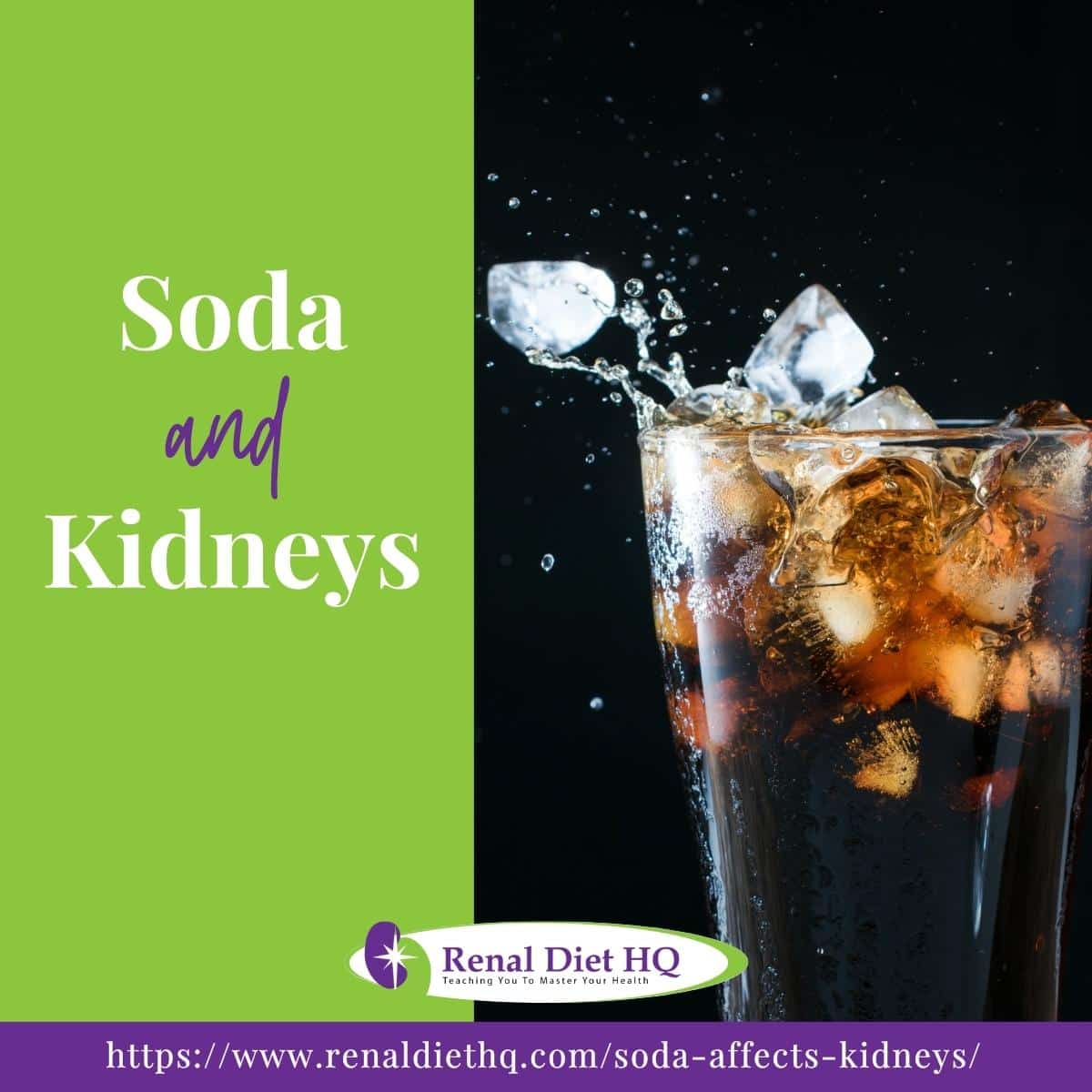
Is Soda Bad for Your Kidneys?
To protect your overall health, it's important to be aware of the potential link between excessive soda consumption and chronic diseases.
Numerous studies have shown that consuming too much soda can increase the risk of developing heart disease. The high amounts of sugar in soda can lead to weight gain and obesity, both of which are major risk factors for heart disease (ckd and heart disease).
Additionally, excessive soda intake has been linked to liver damage. The large amount of fructose in soda can overload the liver, leading to fat accumulation and inflammation. This can eventually progress to non-alcoholic fatty liver disease.
Moreover, drinking too much soda can cause digestive issues such as bloating, gas, and indigestion due to its carbonation and artificial sweeteners.
Lastly, research suggests a possible connection between regular consumption of sugary beverages like soda and mental health problems such as depression and anxiety. Therefore, being mindful of your soda intake is crucial for maintaining good overall health.
Understanding the Connection Between Soda & Health Problems
When it comes to soda and weight gain, it's important to recognize the correlation between consuming sugary beverages and an increased risk of obesity.
Research has shown that regular consumption of soda is associated with higher calorie intake and can contribute to weight gain over time.
Additionally, soda consumption has been linked to an increased risk of developing type 2 diabetes due to its high sugar content and impact on insulin resistance. Check out this 7-day meal plan for kidney disease and diabetes.
Soda and Weight Gain
Regular consumption of soda can contribute to weight gain due to several factors. Soda is high in added sugars, which are empty calories devoid of nutrients.
These sugars are quickly absorbed by the body, leading to a rapid spike in blood sugar levels. Insulin is released to regulate this surge, often causing a subsequent drop in blood sugar, leading to hunger and cravings for more sugary foods.
Moreover, the liquid form of soda doesn't promote the same feeling of fullness as solid foods, causing individuals to consume more calories without realizing it. These excess calories can lead to an energy imbalance, where the body stores the surplus as fat.
Soda's high sugar content also contributes to increased fat storage, especially visceral fat around internal organs, increasing the risk of obesity-related health issues such as diabetes, cardiovascular diseases, and metabolic syndrome.
Furthermore, soda consumption can disrupt the body's hormonal balance, affecting appetite regulation and metabolism, further promoting weight gain.
Ultimately, the habitual consumption of soda can result in a higher caloric intake, a disrupted metabolic state, and an increased likelihood of weight gain and associated health problems.
Soda and Diabetes Risk
Regular soda consumption has been linked to an increased risk of diabetes, which in turn elevates the likelihood of developing chronic kidney disease (CKD).
Soda is loaded with high amounts of added sugars, primarily in the form of high fructose corn syrup, which can lead to insulin resistance over time. Insulin resistance impairs the body's ability to effectively regulate blood sugar levels, ultimately contributing to the development of type 2 diabetes.
Diabetes is a major risk factor for CKD. The consistently high blood sugar levels associated with diabetes can damage the blood vessels and tiny filtering units (glomeruli) in the kidneys, impairing their function. Over time, this can lead to diabetic kidney disease or diabetic nephropathy, a common cause of CKD.
Moreover, soda consumption is associated with weight gain and obesity, both of which are additional risk factors for diabetes. Excessive calorie intake from sugary beverages can contribute to obesity, further exacerbating insulin resistance and diabetes risk.
The intricate connection between soda consumption, diabetes, and CKD underscores the importance of making healthy beverage choices.
Limiting or avoiding sugary drinks like soda can reduce the risk of diabetes, subsequently decreasing the likelihood of developing diabetic kidney disease. This highlights the significance of dietary habits in preventing the cascade of health issues that can arise from excessive soda consumption.
Addictions to Soda
The allure of soda is not only about its refreshing taste but also the potential dangers hidden within. The addictive combination of fructose and caffeine present in soda can create a detrimental cycle.
Fructose, a type of sugar, not only contributes to weight gain and obesity but can also lead to insulin resistance. Meanwhile, caffeine's stimulating effects can foster dependency, leading to increased soda consumption.
This dual addiction can pave the way for a range of health issues, including obesity, diabetes, and even chronic kidney disease. Understanding the risks of fructose and caffeine addiction in soda is crucial for making informed choices about beverage consumption and safeguarding overall health.
Fructose and Potential Addiction
Soda consumption, often containing high fructose corn syrup (HFCS), has raised concerns due to its potential for fructose addiction and adverse health effects. Research suggests that fructose can stimulate dopamine release while simultaneously reducing D2 receptors, creating an addictive desire for more consumption.
This mechanism ensures continued intake by fostering compulsive behaviors. Surprisingly, HFCS can impair dopamine function even without causing weight gain or increased fat consumption, potentially contributing to increased obesity risk.
Dopamine's role in reward pathways and energy expenditure further underscores its significance in obesity development. These effects on dopamine function and insulin dysregulation may precede and contribute to long-term obesity risks.
Notably, the correlation between increased soda consumption and rising rates of obesity and metabolic disorders, particularly in countries following a 'Western' diet, highlights the concern.
The connection between fructose addiction, HFCS-laden soda, and obesity-related complications underscores the importance of understanding these mechanisms.
Awareness of the potential for fructose addiction and its association with soda consumption can serve as a foundation for informed choices and proactive health management.
Soda and Caffeine Dependence
Regular soda consumption raises concerns about potential caffeine dependence, as many sodas contain caffeine, a stimulant known to have addictive properties. Caffeine stimulates the central nervous system, temporarily boosting energy and alertness.
Over time, regular consumption can lead to tolerance, requiring higher doses for the same effects, which can contribute to dependence.
This table highlights how caffeine content can vary based on serving type, potentially leading to inconsistent caffeine intake.
| Soda Type | Caffeine Content (per serving) |
| Amount | 7.5 oz (222 ml) |
| Coca-Cola | 21 mg |
| Diet Coke | 28 mg |
Regular soda consumption raises concerns about potential caffeine dependence, as many sodas contain caffeine, a stimulant known to have addictive properties.
Caffeine stimulates the central nervous system, temporarily boosting energy and alertness. Over time, regular consumption can lead to tolerance, requiring higher doses for the same effects, which can contribute to dependence.
Over time, individuals may develop a reliance on caffeine to maintain alertness or alleviate withdrawal symptoms such as headaches, fatigue, and irritability. This reinforces the importance of moderation in soda consumption and being aware of the potential for caffeine dependence. You may even consider renal diet coffee as an alternative.
Hidden Dangers of Diet Sweeteners
Can stopping diet soda improve kidney function? It's important to understand the potential dangers of consuming artificial sweeteners, especially in soda.
Sweeteners and Health
The use of artificial sweeteners in sodas has raised concerns due to their potential adverse health effects. Erythritol, a common artificial sweetener, has been associated with cardiovascular disease (CVD) events based on observational studies.
A three-year study revealed a concerning link between erythritol consumption and CVD events like stroke and heart attack, particularly in individuals with existing heart disease or risk factors such as diabetes and high blood pressure. This finding suggests that artificial sweeteners may have implications beyond their caloric content.
Artificial sweeteners are often chosen as alternatives to sugar to reduce calorie intake, especially among individuals seeking weight management or managing blood sugar levels.
However, the potential health risks, such as the observed association between erythritol and CVD events, warrant cautious consumption. As research in this area continues, it is essential for individuals, particularly those with pre-existing health conditions, to be mindful of their artificial sweetener intake.
Given the complexity of the relationship between artificial sweeteners and health outcomes, moderation and informed decision-making regarding soda consumption are crucial. Health-conscious individuals should consider seeking guidance from healthcare professionals to make informed choices that align with their specific health needs and goals.
Artificial Sweeteners and Kidneys
Artificial sweeteners have gained popularity in various food products, including diet sodas, and their use presents considerations for individuals with chronic kidney disease. The rising prevalence of these substitutes in everyday foods necessitates nephrology dietitians' ability to provide appropriate recommendations to CKD patients.
Diet sodas, amongst other products, commonly employ artificial sweeteners. Almost any food item on the shelves can be found with these sugar alternatives. It is crucial for both patients and dietitians to carefully read ingredients due to the extensive range of products that include artificial sweeteners.
The table below highlights the FDA-approved artificial sweeteners, their brand names, characteristics, applications, and potassium content adapted from this article:
| Artificial Sweetener | Brand Name | Characteristics | Applications | Contraindications | Benefits | Calories | Potassium | Manufacturer and Address | Websites |
| Acesulfame-K | Sunett, Sweet One | Calorie-free; 200x sweeter | Numerous | Safe; limit potassium | Doesn't impact blood sugar; useful in cooking/baking; excreted unchanged | 0/packet | 10 mg/packet | Sweet One, Stadt Holdings Corp., Brooklyn, NY | sweetone.com; celanese.com |
| Aspartame | Equal, NutraSweet | 200x sweeter; like sugar | Tabletop, gum, cereal | Phenylketonuria patients avoid | No blood sugar impact; concentrated sweetness; 4 cal/g | 0/packet | 0 mg/packet | Equal, Merisant, Chicago, IL; NutraSweet, Chicago, IL | equal.com; nutrasweet.com |
| Neotame | - | Calorie-free; 7,000-13,000x sweeter | Baked goods, drinks, more | Similar to aspartame; limited phenylalanine release | No blood sugar impact; useful in cooking/baking | 0/packet | 0 | NutraSweet, Chicago, IL | neotame.com |
| Saccharin | Sweet'N Low, Sweet Twin | 200-700x sweeter | Tabletop, gum, drinks, baked goods | Avoided by pregnant women | No blood sugar impact; stable in heat; prolongs shelf life | 0/packet | 0 | Cumberland Packing Corp., Brooklyn, NY | sweetnlow.com |
| Sucralose | Splenda | 600-700x sweeter | All foods, beverages, desserts | Generally safe | No blood sugar impact; good for baking; FDA-deemed safe | 0/packet | 0 | McNeil Nutritionals, LLC, Ft. Washington, PA | splenda.com |
Diet sodas are a prime example of products utilizing artificial sweeteners. These substitutes offer the sweetness people crave without contributing calories or affecting blood sugar levels. However, the benefits come with caution.
Artificial sweeteners are often significantly sweeter than sugar, allowing for the use of smaller quantities to achieve the same level of sweetness. One major concern in CKD is potassium intake.
Some artificial sweeteners, like Acesulfame-K, contribute to dietary potassium. Monitoring consumption is essential to avoid exceeding recommended levels.
Other Health Effects of Soda
Aside from the health effects of soda related to its effects on the body’s metabolism and kidney function, it is also important to note that there are other consequences from excessive soda consumption beyond those we have previously mentioned. Learn to start improving kidney function with diet.
Soda and Gout
Excessive soda consumption has been linked to an increased risk of gout, a painful form of arthritis. A comprehensive 22-year study involving 80,000 women revealed a concerning correlation between sugary drink intake and gout risk.
Women who consumed one can of sugary drink daily faced a staggering 75% higher risk of developing gout compared to those who rarely consumed such beverages. This heightened risk among cola drinkers is attributed to the urate-raising effect of fructose, a type of sugar found in abundance in sugary drinks like soda.
The study highlights the potential negative impact of high fructose intake on uric acid levels, which is a key factor in gout development. This information underscores the importance of reducing sugary drink consumption as a preventive measure against gout and its associated health complications.
Bone Health
Excessive soda consumption, particularly concerning renal patients, can significantly jeopardize bone health due to its unique impact. The high phosphate content in soda poses a specific challenge to maintaining healthy bones.
When phosphate intake surpasses calcium intake, it can have detrimental effects on bone health, potentially leading to weakened bones and related issues. Renal patients are already at a higher risk of bone complications due to their condition, making the additional burden of excessive phosphate intake from soda particularly worrisome.
Monitoring level of phosphorus and calcium balance is crucial for maintaining bone strength and minimizing bone-related complications, especially in populations susceptible to bone disorders like renal patients.
Reducing soda consumption and focusing on calcium-rich foods can play a vital role in promoting better bone health and mitigating these risks.
Dental Health
Excessive soda consumption can have detrimental effects on dental health. The high sugar content in sodas provides a breeding ground for harmful bacteria in the mouth, leading to the production of acids that erode tooth enamel, causing cavities and decay.
Additionally, the acids present in sodas, whether natural or added, can directly weaken tooth enamel, making teeth more susceptible to damage. The darker pigments in some sodas can also stain teeth over time.
Even diet sodas, often chosen for their low sugar content, are acidic and can contribute to enamel erosion. Regular exposure to these acidic and sugary elements increases the risk of dental problems, leading to tooth sensitivity, cavities, and potential tooth loss.
Maintaining good oral hygiene practices, seeking regular dental care, and limiting soda consumption can help preserve dental health and prevent these adverse effects. Here are a few ideas for healthy eating with a dialysis diet plan.
Rising Number of People with Diabetes and Kidney Failure
If you're a regular soda drinker, it's important to be aware of the potential risks it can pose to your health.
One key concern is the increased risk of developing diabetes. Research has shown that consuming sugary drinks like soda regularly can significantly increase your chances of developing type 2 diabetes.
Additionally, soda consumption has been linked to negative effects on kidney function, including an increased risk of kidney stones and even renal failure in some cases. Are dark sodas bad for kidneys? If you have kidney failure, dark sodas have a large amount of phosphorus in them. Sprite or clear sodas are a better choice.
The rising prevalence of diabetes and kidney failure linked to soda consumption can be attributed to several factors highlighted by research. A study indicates a significant association between the consumption of two or more glasses of cola per day and an elevated risk of chronic kidney disease.
This finding underscores the potential dangers of regular soda intake, particularly cola beverages which often contain high levels of added sugars, artificial sweeteners, and phosphoric acid.
Excessive soda consumption, especially sugary variants, can contribute to obesity and insulin resistance, both of which are risk factors for type 2 diabetes.
Moreover, the high sugar content in soda can lead to rapid spikes in blood sugar levels, further straining the body's ability to regulate glucose. For individuals with diabetes, this can worsen the progression of kidney disease, as elevated blood sugar levels can damage the kidneys' delicate filtering system over time.
The dietary phosphorus from colas can disrupt the balance of minerals in the body, potentially leading to decreased calcium absorption and negatively impacting bone health. Making smart goals for chronic kidney disease is always a good idea!
Additionally, the link between cola consumption and kidney disease suggests that the combination of sugars, acids, and other additives in these beverages may play a role in the development or exacerbation of kidney problems.
To combat the rising numbers of diabetes and kidney failure cases associated with soda consumption, public health initiatives, education, and policy changes are crucial.
Encouraging reduced soda intake, promoting healthier beverage options, and raising awareness about the potential health risks of excessive soda consumption can contribute to mitigating the impact on diabetes (renal diabetic diet) and kidney disease rates.

Kidney-Friendly Alternatives to Soda
Looking for healthier alternatives to soda? Wondering about the benefits of reducing your soda consumption?
In this discussion, we will explore the healthiest soda alternatives available and delve into the evidence-based benefits of cutting back on soda.
Healthiest Soda Alternatives
For individuals with diabetes or kidney disease, opting for healthier soda alternatives is crucial to manage their conditions.
Water stands as the ultimate choice, providing hydration without any negative impact on blood sugar levels or kidney function. Herbal teas, both hot and cold, offer flavorful options without added sugars.
Sparkling water or seltzer can mimic the fizzy sensation of soda without the sugar or artificial sweeteners, making it a diabetes and kidney-friendly choice.
For those who crave fruitiness, infusing water with slices of citrus fruits, berries, or cucumber adds natural flavor without added sugars. Unsweetened iced tea, whether black or green, can be sweetened with a small amount of a natural sweetener like stevia or monk fruit.
When considering store-bought options, checking labels is vital. Look for beverages labeled "unsweetened," "no added sugars," or "low sodium" to make more informed choices. Vegetable juices or blends can also be lower in sugars compared to fruit juices, providing nutrients without causing spikes in blood sugar.
Consulting a healthcare professional or renal dietitian can help tailor beverage choices to individual dietary needs and restrictions, ensuring that diabetes and kidney disease are well-managed while still enjoying refreshing drinks.
Benefits of Reducing Soda
Reducing soda consumption can lead to a decrease in sugar intake and provide various health benefits. Here are four reasons why reducing soda consumption is beneficial for your health:
- Improved kidney health: High soda consumption has been linked to an increased risk of kidney disease. By cutting down on soda, you can help protect the health of your kidneys.
- Weight management: Soda is high in calories and sugar, which can contribute to weight gain and obesity. Choosing healthier alternatives or reducing soda intake altogether can support weight management efforts.
- Lower risk of chronic diseases: Regular soda consumption has been associated with an increased risk of chronic conditions such as type 2 diabetes, heart disease, and metabolic syndrome. By reducing soda intake, you can lower your risk of developing these diseases.
- Better hydration: Soda is not a good source of hydration due to its high sugar and caffeine content. This caffeine content aggravates dehydration due to its diuretic effects. Opting for healthier alternatives like water or unsweetened beverages can help ensure proper hydration (water rich foods).
FAQs about Soda & Kidneys
For individuals with diabetes or kidney disease, opting for kidney-friendly alternatives to soda is essential. Water is the best choice, as it hydrates without additives. Herbal teas, both hot and cold, provide flavorful options.
Diluted fruit juices or infused water with fruits and herbs add variety. Low-sugar or unsweetened beverages like coconut water, almond milk (is almond milk bad for the kidneys?), and sparkling water with a splash of citrus are also good choices.
These alternatives avoid excessive sugar, phosphoric acid, and artificial sweeteners, helping to maintain kidney health and manage blood sugar levels effectively. Always consult a healthcare professional for personalized dietary recommendations.
Excessive soda consumption elevates blood sugar levels due to its high sugar content. Prolonged high blood sugar can damage blood vessels and nephrons in the kidneys, impairing their filtration function.
This can lead to diabetic nephropathy, where kidneys become less effective at filtering waste and excess fluids. Over time, decreased kidney function can result in chronic kidney disease or even kidney failure.
The constant sugar load also contributes to inflammation and oxidative stress, further compromising kidney health. Monitoring and controlling blood sugar through a balanced diet, avoiding sugary drinks, and seeking medical guidance are crucial to prevent kidney function decline.
Diet sweeteners in soda pose hidden dangers despite being low in calories. They can still trigger an insulin response, affecting blood sugar levels and potentially leading to insulin resistance. Moreover, they might disrupt the gut microbiota, impacting metabolism.
Paradoxically, consuming diet soda can increase cravings for sweet foods, contributing to overeating. Additionally, artificial sweeteners like aspartame can pose risks for individuals with phenylketonuria (PKU).
The lack of nutrients in diet sodas also doesn't satisfy the body's need for energy and nutrients. While touted as healthier alternatives, diet sweeteners in soda have potential metabolic, psychological, and health-related drawbacks that warrant caution. Trying something like low potassium smoothies recipes is a smart idea!
Soda can detrimentally impact overall health, especially kidneys. Excessive soda consumption, laden with sugar or artificial sweeteners, can lead to obesity, diabetes, and hypertension – all detrimental to kidney health.
The high phosphate in cola drinks can disrupt the body's calcium-phosphorus balance, weakening bones and stressing the kidneys. Excessive sugar intake strains kidneys, promoting inflammation and oxidative stress.
Furthermore, soda's high fructose content can lead to insulin resistance and metabolic disturbances, affecting kidney function. Regular soda consumption increases the risk of kidney disease, making it imperative to opt for healthier alternatives to protect kidney and overall well-being.
Soda Can Be Harmful With CKD
The impact of soda on health and kidney function is substantial. Studies reveal that excessive soda consumption is associated with an increased kidney disease risk, kidney stones, gout, and kidney failure.
The high sugar and artificial sweetener content in soda link to chronic conditions like obesity, type 2 diabetes, and heart disease. Moreover, soda's phosphoric acid affects bone health and electrolyte balance, straining the kidneys.
The addictive nature of fructose and caffeine in soda escalates health risks. Kidney-friendly alternatives like water, herbal teas, and unsweetened beverages are pivotal. Reducing soda intake benefits weight management, prevents chronic diseases, and promotes hydration (ccd diet).
Understanding these connections underscores the importance of informed choices, moderation, and prioritizing kidney health. By opting for healthier beverages and minimizing soda consumption, individuals can proactively safeguard their overall well-being.


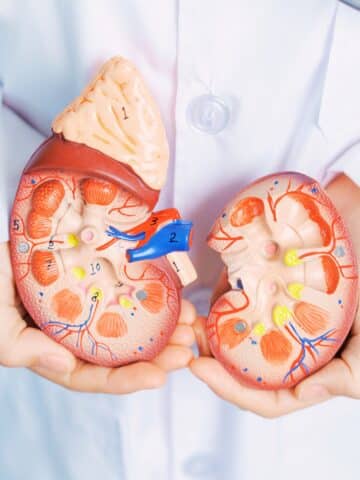




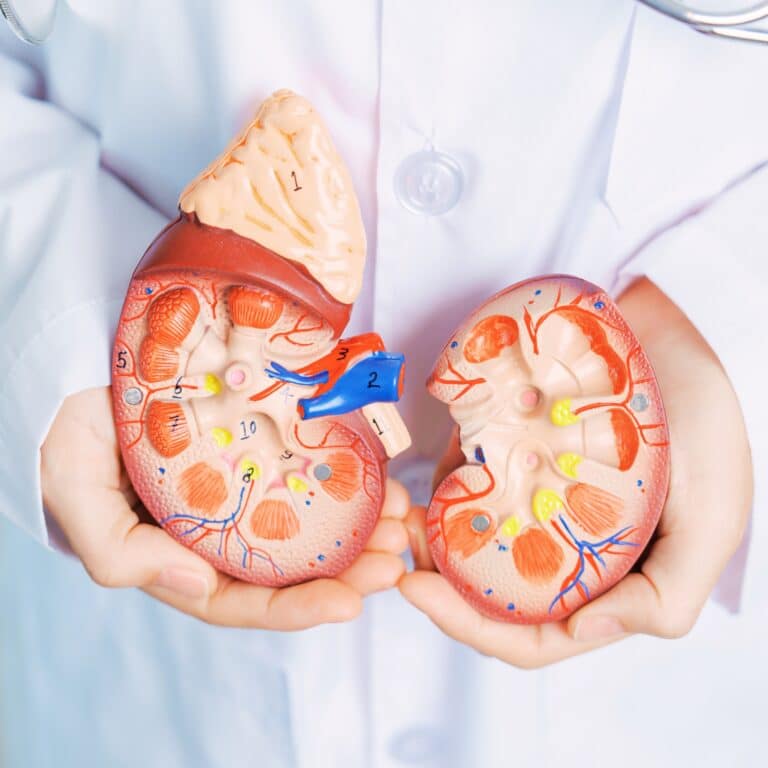

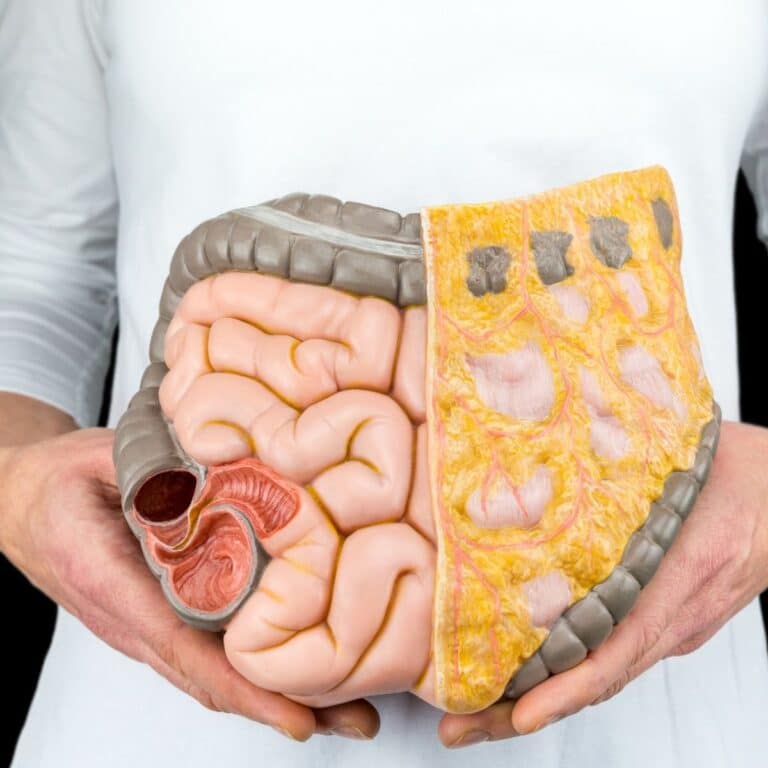
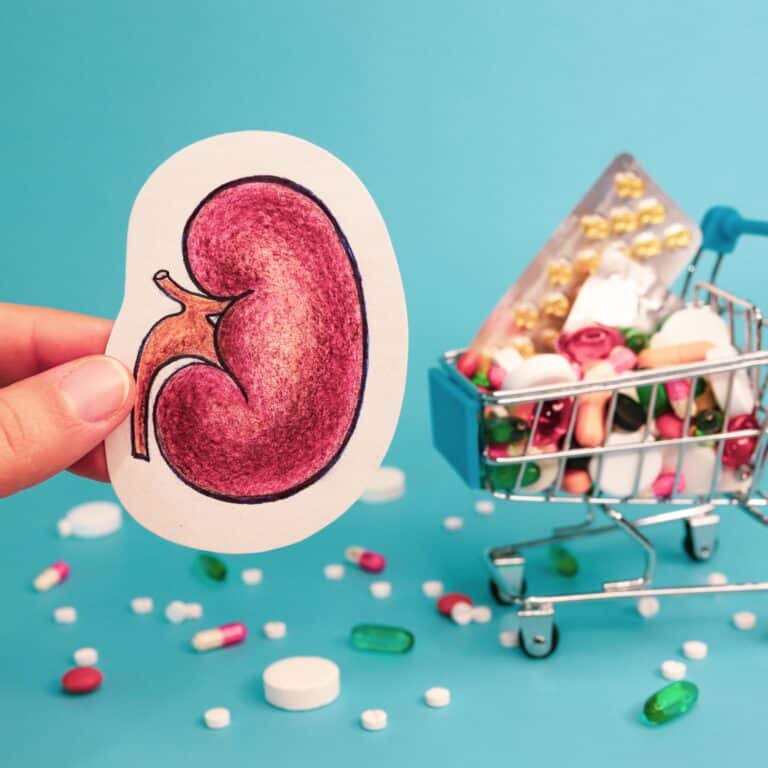







How do I know if I am acute or chronic?